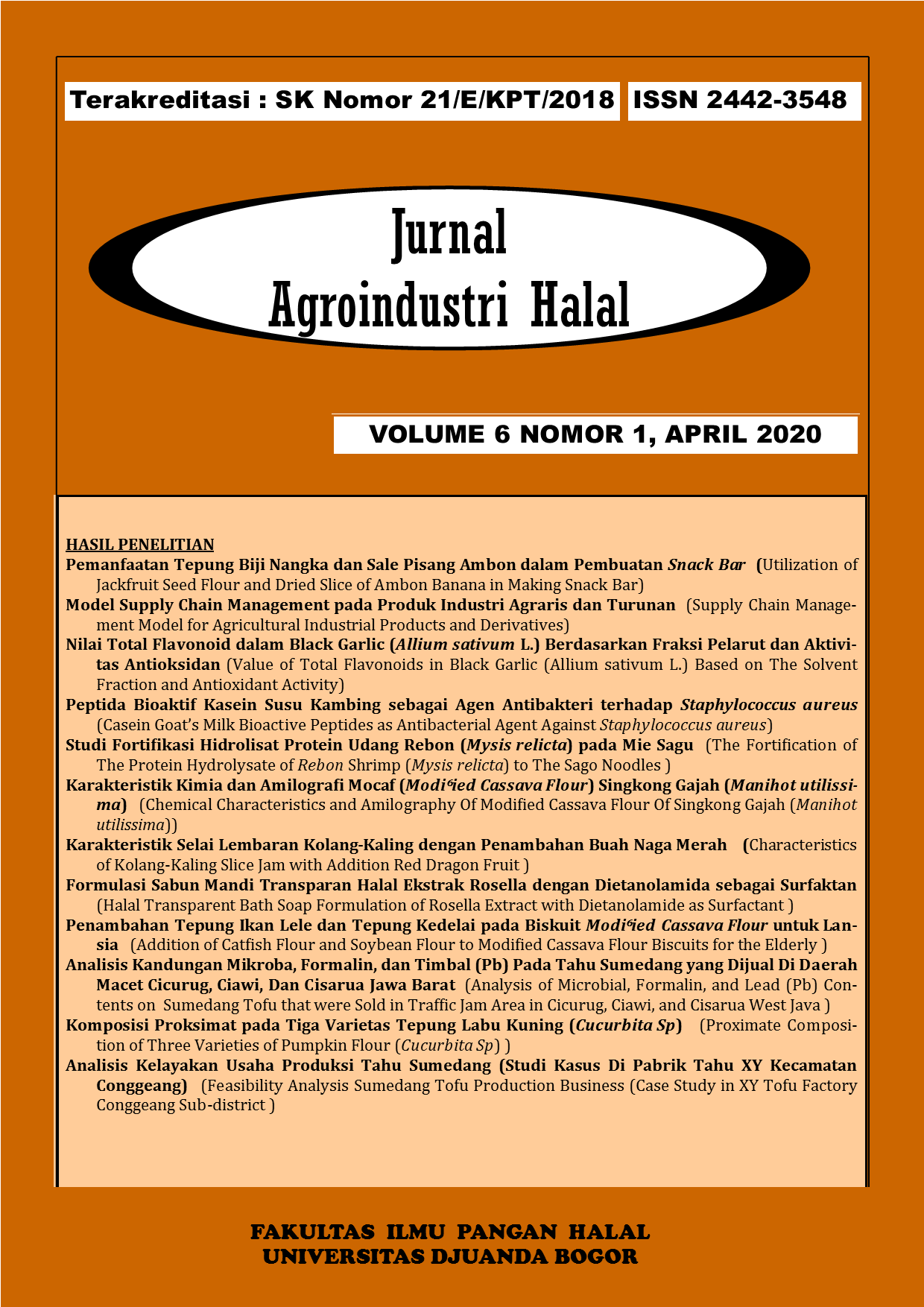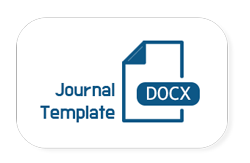Karakteristik Selai Lembaran Kolang-Kaling dengan Penambahan Buah Naga Merah
DOI:
https://doi.org/10.30997/jah.v6i1.2218Abstract
The purpose of this research was to obtain the best formulation of slice jam from kolang-kaling and red dragon fruit based on the characteristics. This research used experimental method by using a complete randomized design (RAL) with four treatments and four replications. The treatments were KN1 = kolang-kaling puree 90% and red dragon fruit puree 10%, KN2 = kolang-kaling puree 80% and red dragon fruit 20%, KN3 = kolang-kaling puree 70% and red dragon fruit puree 30%, KN4 = kolang-kaling puree 60% and red dragon fruit puree 40%. Data were statistically analyzed using ANOVA and DNMRT at 5% level. Based on this research the best treatment was slice jam KN3= kolang-kaling puree 70% and red dragon fruit puree 30% which had 19,55% moisture content, 0,55% ash content, 1,52% crude fiber content, 41,45% level of reducty sugar. Result of the sensory test were descriptive red colorur, kolang-kaling and red dragon fruit taste, red dragon fruit flavor, and rather chewy in texture. Result of the hedonic test on color, taste, flavor, texture and overall assessment were liked by panelists.Downloads
Published
2020-04-07
How to Cite
Sari, R., Johan, V. S., & Harun, N. (2020). Karakteristik Selai Lembaran Kolang-Kaling dengan Penambahan Buah Naga Merah. JURNAL AGROINDUSTRI HALAL, 6(1), 057–065. https://doi.org/10.30997/jah.v6i1.2218
Issue
Section
Articles
License
Authors who publish with Jurnal Agroindustri Halal agree to the following terms:
- Authors retain copyright and grant the journal right of first publication with the work simultaneously licensed under a Creative Commons Attribution 4.0 International License that allows others to share the work with an acknowledgement of the work's authorship and initial publication in Jurnal Agroindustri Halal.
- Authors are able to enter into separate, additional contractual arrangements for the non-exclusive distribution of the journal's published version of the work (e.g., post it to an institutional repository or publish it in a book), with an acknowledgement of its initial publication in Jurnal Agroindustri Halal.
- Authors are permitted and encouraged to post their work online (e.g., in institutional repositories or on their website) prior to and during the submission process, as it can lead to productive exchanges, as well as earlier and greater citation of published work








